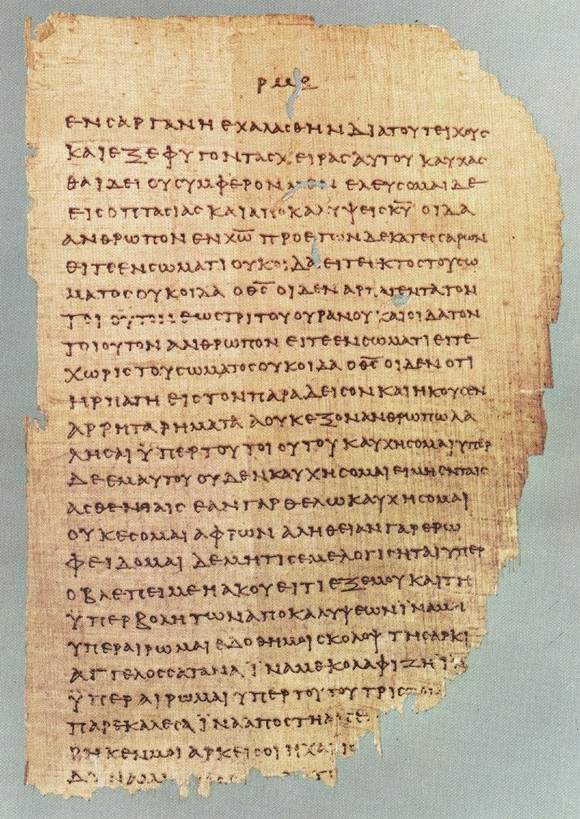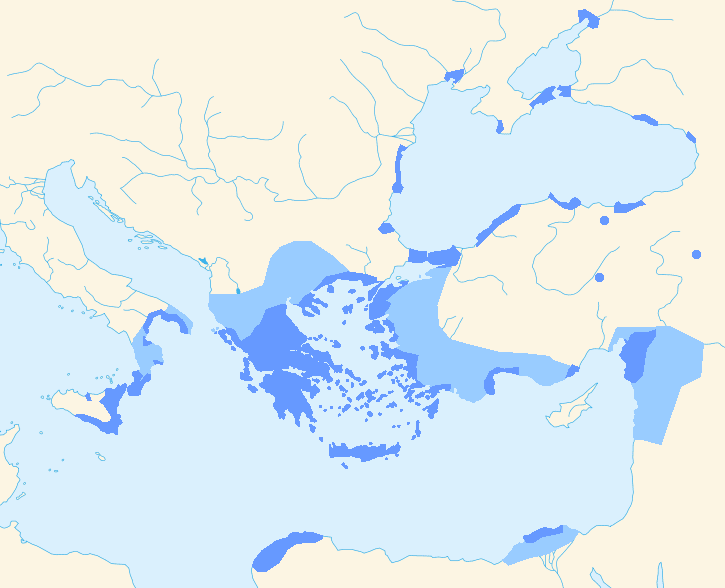After Alexander, all trade was done in Koine Greek ("common" or "shared" Greek, pronounced "coin-ay"). It was the language of trade into the medieval times, lasting at least 900 years (the Byzantine empire used it until they were sacked by the Arabs in 1453). All the New Testament texts were first written in this language, the language used to communicate with the world. Koine Greek is not a sophisticated language, and in writing less so than in speaking. For example, "blue" and "sky" are the same word. Writing in Koine Greek takes many shortcuts, and only context can tell you the correct interpretation. But most cultural idioms are lost to us and so is the context, and we have a very difficult time making out what some passages mean.
Papyrus 46, one of the earliest New Testament documents, 175 - 225 A.D. No punctuation, no paragraphs, no spaces; just a wall of letters:

An example is here:
Ἐνἀρχῇἦνὁλόγοςκαὶὁλόγοςἦνπρὸςτὸνθεόνκαὶθ
εὸςἦνὁλόγοςοὗτοςἦνἐνἀρχῇπρὸςτὸνθεόνπάντα
δι᾽αὐτοῦἐγένετοκαὶχωρὶςαὐτοῦἐγένετοοὐδὲἕνὃγ
έγονενἐναὐτῷζωὴἦνκαὶἡζωὴἦντὸφῶςτῶνἀνθρ
ώπωνκαὶτὸφῶςἐντῇσκοτίᾳφαίνεικαὶἡσκοτίααὐ
τὸοὐκατέλαβεν.
In the beginning was the Word, and the Word was with God, and the Word was God. He was in the beginning with God. All things were made by Him; and without Him was not anything made that was made. In Him was life, and the life was the light of men. And the light shines in darkness; and the darkness comprehended it not.
So when reading these English translations from Koine, take them with a grain of salt. We are familiar with exactness in writing in English and it's easy to pass on the surety of meaning to English translations where that surety never existed in the original.
Map of where Koine Greek was spoken. Dark blue is where the Greeks lived; light blue is water:
